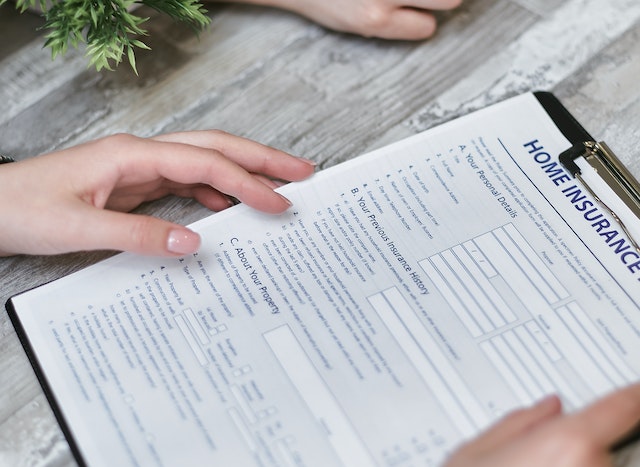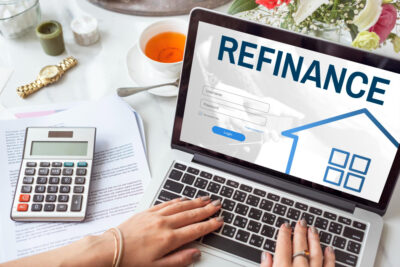Having enough insurance on a home is vital in case something happens. You’ll need financial protection in the case of a total loss or other damage. Without it, you’d have to pay for repairs out-of-pocket, putting the cost of your house up to $27,000 higher.
Are you adequately insured for your home? If you aren’t sure, home insurance tips can help you discover your coverage and the cost to switch to another policy.
Many first-time homeowners have difficulties realizing how much insurance they need. Be prepared for anything. Here’s a guide on how to make sure you have enough insurance for your house.
1. Schedule an Annual Insurance Check Up
One of the best tips for making sure you have enough insurance on your home is to schedule an annual insurance check-up with your agent. This will help you keep track of how much your home is worth and how much coverage you should have.
You should also keep an up-to-date inventory of your belongings and keep track of any changes in your home that could affect your insurance coverage. It’s also a good idea to review your policy limits every few years to make sure they still meet your needs.
2. Get Several Price Quotes
It’s a good idea to get several price quotes before you decide on a policy. Keep in mind that the price isn’t the only factor you should consider when choosing a house insurance company.
You’ll also want to look at the company’s financial stability, customer service record, and the types of coverage they offer.
3. Check Company’s Rating
The most important is to check the company’s rating. Make sure the company is reputable and has a good rating. There are a few different ways to do this, but one easy way is to look them up on the Better Business Bureau’s website.
4. Know What Your Policy Does and Doesn’t Cover
Homeowners insurance typically covers the structure of your home, clothing, and personal items. It also provides liability protection against lawsuits for injury or property damage to others on your property.
Know what your policy covers and doesn’t cover. Many policies have exclusions or limitations on certain types of coverage, so it’s important to be aware of these.
5. Pick a High Enough Deductible
This will ensure that you are covered in the event of a major disaster, such as a fire or tornado. By having a high deductible, you will also be able to save money on your monthly premiums.
6. Ask About Discounts
Ask your insurance agent about discounts. Some insurers offer discounts on your premium if you have certain features in your home, such as an alarm system. You may also get a discount if you buy other types of insurance, such as auto insurance, from the same company.
7. Avoid Gaps in Coverage
There are a few key things you can do to avoid gaps in coverage when it comes to insuring your home. First, make sure you have an up-to-date list of all the valuable items in your home and their replacement costs. This will come in handy if you need to make a claim.
8. Check Out Additional Protections
It’s a good idea to check with your insurance company to see if you are adequately protected in the event of a fire, theft, or other disasters. You may need to purchase additional insurance to cover the full value of your home and possessions.
Be sure to tell your insurance agent about any valuable items in your home, such as jewelry, art, or electronics. You may need to purchase a separate policy to insure these items.
9. Be Aware of Geography
No matter what your home insurance policies cover, it’s important to be aware of the geography of your home. If you live in an area prone to hurricanes, for example, you’ll need to make sure you have enough insurance to cover the cost of repairs.
The same is true for homes in earthquake zones. If you’re not sure what kind of coverage you need, talk to your insurance agent. They can help you determine the best coverage for your home.
10. Protect Your Financial Assets
One of the most important things you can do to protect your financial assets is to make sure you have enough insurance on your home. Know the value of your home and possessions.
Make sure you have enough coverage to replace them if they are damaged or destroyed. Next is your liability. You’ll need to make sure you’re covered for any accidents that happen on your property.
11. Consider Your Comfort Level
Think about your comfort level. What are you comfortable with in terms of coverage and out-of-pocket costs? It’s important to remember that you may not have the same needs as someone else, so don’t necessarily compare yourself to others.
Make sure you have enough coverage to protect your home and belongings but don’t over-insure to the point where you’re paying for more coverage than you need.
12. Embrace Preventive Maintenance
By keeping your home in good repair and taking proactive steps to protect it from weather damage, you can help avoid the need for costly repairs or replacements down the road.
Regularly inspect your home’s exterior and take care of any repairs or maintenance tasks as soon as they are needed. Consider investing in weather-resistant materials and products to help safeguard your home against the elements.
By being proactive now, you can help ensure that your home is properly protected in the future.
Insurance on a Home For Your Safety
It’s important to make sure you have enough insurance on a home in case of an accident or disaster. Consider insurance riders for high-value items, such as jewelry or art.
Keep these tips in mind to make sure you’re properly protected. Talk to your insurance agent about your coverage needs and be sure to review your policy regularly.
Looking for more information like this? Feel free to explore the rest of our blog now.










